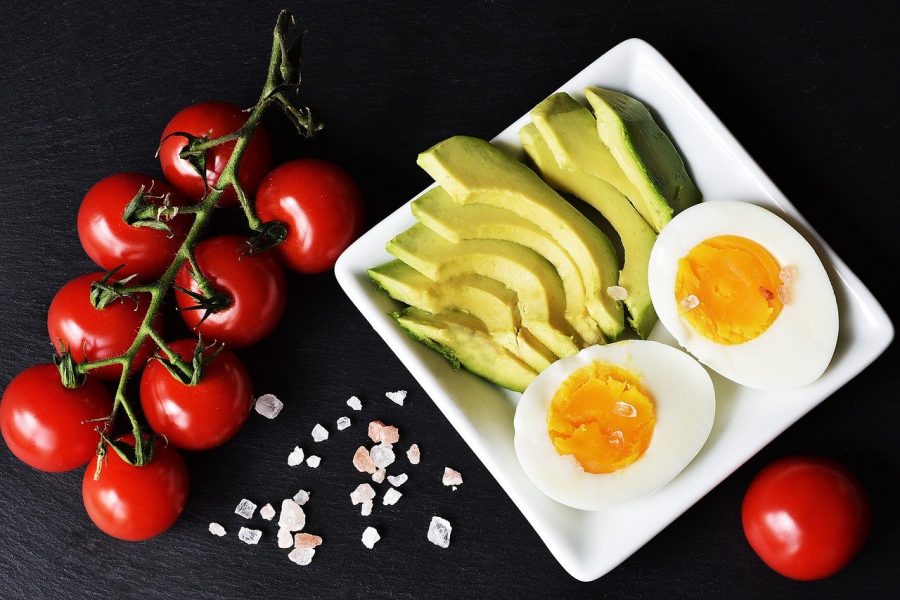The Dire Effects of Unsafe Dieting
Dieting is a normalized part of today’s pop culture and society. It’s been promoted to people from a young age on TV shows and magazine covers and is often celebrated as an indicator of peak-health.
For some, however, dieting is much more than just eating smaller portions and cutting out processed foods. It can also involve supplements, meal replacements, and extreme food restrictions. Improper dieting can lead to significant health risks, making the promotion of safe practices all the more important.
Fad diets are popular diets that promise drastic results, like losing weight very quickly without exercise. While not all of them are inherently bad, some can be unsafely restrictive and unsustainable.
The juice cleanse, for example, is a fad diet in which one only drinks juice for up to a month at a time in order to cleanse the body of toxins. Some medical professionals such as physician Caroline Cederquist say the diet’s low calories and lack of protein can cause dieters to lose muscle instead of fat.
The keto diet, which involves eating few carbs and lots of fat, is another fad diet that began gaining traction in 2017. The Harvard Health Publishing cites risks of liver and kidney problems, as well as nutrient deficiency.
These fad diets are sometimes promoted by celebrities. Celebrities like Patriots quarterback Tom Brady and Friends actress Jennifer Aniston have endorsed an alkaline diet, which involves eating foods that allegedly balance the pH level of blood. Jack Dorsey, CEO of Twitter, only eats one meal a day and fasts during the weekend.

While the effectiveness and safety of these diets leave room to be questioned, some influencers take promoting dieting to the extreme by endorsing unsafe diet supplements. Reality TV star Kim Kardashian, for example, has promoted appetite suppressant lollipops with a post on her Instagram. The lollipops, sold by Flat Tummy Co., are not FDA approved. The now-deleted post garnered much backlash, as many felt it was distasteful for Kardashian to promote appetite suppression to her Instagram audience of over 100 million followers.
“Highly influential celebrities are letting down the very people who look up to them, by peddling products which are at best ineffective and at worst harmful,” said Professor Stephen Prowis, medical director of the National Health Service.
Many celebrities also promote different brands of detox teas, teas meant to rid the body of toxins and aid weight loss. Kylie Jenner, Kalani Hilliker, Demi Lovato, and Cardi B have all posted about Teami. Vanessa Hudgens and Kim Kardashian have promoted Flat Tummy Tea. Tom Felton, Danielle Campell, Kylie Jenner, and Khloe Kardashian have all promoted Fit Tea.
The Good Place actress Jameela Jamil has been vocal about her opinions of celebrities endorsing weight loss products.
“…It’s such a lie,” said Jamil in a video posted on her twitter. “[Celebrities] don’t take these products. These products cannot make you look the way these women do. You know what makes them look the way that they do? Personal trainers, chefs, nutritionists, photoshop, plastic surgeons, all of which they’re able to afford from the money that they receive from selling you these diet and detox products.”
While many reviews and testimonies claim these teas aid weight loss, nutritionist and author Lisa Drayer says that many detox teas only help you lose water weight, which can be quickly regained.
Unsafe dieting can have dire effects. For example, Yo-Yo dieting is a cycle of weight gain and weight loss. It occurs when one’s appetite increases after dieting to lose weight, creating a weight gain that diminishes or exceeds progress made by the diet. This weight cycling can increase the risk of death, as well as increase the risk of heart attacks and strokes.
While not all people who diet develop eating disorders, eating disorders such as anorexia and bulimia often develop after dieting. According to the National Eating Disorders Association (NEDA), people who diet moderately are five times more likely to develop an eating disorder than those who don’t, and people who diet extremely are 18 times more likely. NEDA also reports that dieting is the most significant predictor of developing an eating disorder in 14 and 15-year-olds.
An eating disorder tied directly to dieting is orthorexia, a disorder in which one is so preoccupied and obsessed with their diet to the point of anxiety.
Despite the dangers, dieting can still be done safely.
TeensHealth recommends not trying diets that restrict an entire food group, like carbs and fats, as well as not going on low-calorie and low-fat diets long-term.
When wanting to try a fad diet, Mayo Clinic recommends looking into scientific research that proves its effectiveness.
If dieting to lose weight, the National Health Service (NHS) recommends setting “small and realistic goals” in order to ensure safety.
Proper food intake is essential for bodily function, making healthy dieting practices just as important.

Abby Fowler, senior, has been a copy editor for The Live Wire since year one. Fowler is also involved in varsity tennis, SLAP, Voltage jazz choir, speech,...













